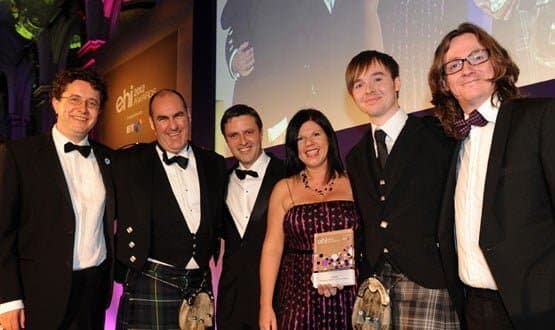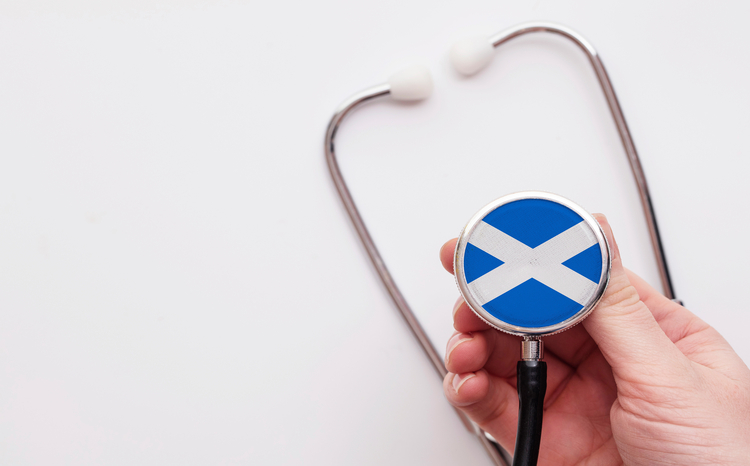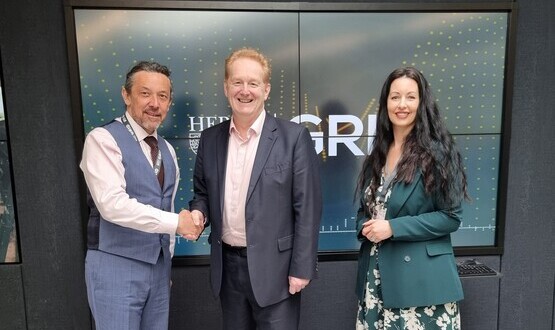An app to fly by
- 24 April 2013

Although the Emergency Medical Retrieval Service is based in Glasgow, it serves the 10% of the Scottish population that lives more than an hour’s drive away from a hospital with an emergency or intensive care unit.
Medical care in these remote and rural areas tends to be provided by small community hospitals staffed by GPs. The EMRS provides a patient retrieval and transport service, by helicopter or by plane, when these local services are not sufficient.
“We cover the north and west of Scotland, which includes some geographically difficult terrain – really quite inaccessible by road – while working with the full mix of medical and trauma cases,” says Dr Paul Campbell, a consultant anaesthetist and clinical IT lead with the service.
The EMRS liaises with mountain rescue teams. But patient transfer from small local hospitals to specialist units in Glasgow or other cities is an increasing part of the service. It also provides advice to clinicians in remote areas.
“Working in such circumstances can lead to people feeling quite isolated,” adds Dr Campbell, who says between 30% and 40% of the service’s work is made up of this advice role.
Standard operating procedure
Guidance is needed for such complex care in such a complex environment, and the service has developed more than100 standard operating procedures to do the job. In paper form, says Dr Campbell, these fill enough folders to cover a wall of shelves.
In addition, an entire wall of the service’s base is covered in critical contact details. Neither the folders nor the notes are exactly practical for clinicians to use while administering medical treatment in a helicopter to critically unwell patients.
To address the problem, the team has developed an EMRS app for use on mobile devices; in this case iPhones and iPads.
The app gives clinicians real time access to clinical information plus logistical information such as how to access a particular aircraft, the location of the nearest hospital, a list of its facilities, the nearest landing base, pilot hours and weather reports.
As standard operating procedures are updated, the app is updated, and its functionality has been increased since it was developed in 2010.
For example, it now includes procedural information, such as weekly team briefings, and a direct link to the EMRS’s event reporting system, which encourages staff to report incidents from which safety lessons can be learned.
The app was designed to be simple – Dr Campbell said a guiding principle was that everything should be available within three touches; since “you don’t want to be having to look through six or seven pages.”
But it is also robust, since those working on the service can be on call for up to 12 hours at a time. “Most aeromedical services are back at base within 35 minutes, but we could be going from one side of Scotland to the other,” Dr Campbell points out.
Taking the thinking elsewhere
Dr Campbell says standard operating procedure delivers safer, better care. “Streamlining allows clinicians to focus on delivering clinical care, whilst reducing the overall time needed to deliver definitive care,” he says.
External evaluation of the app has suggested that eight lives have been saved per 100 patients, through the standardised approach to care that it encourages.
The app also makes sure that the service can always follow agreed national triage pathways for its secondary retrieval patients, reducing the need for onward transfers from a destination hospital.
This is particularly necessary in the 10% to 15% of the service’s work that involves going to the scene of an accident.
The service believes the app could be adapted for use in other areas of the NHS, through the development of individual department standard operating procedures translated into departmental apps.
“It would be possible to replicate the practical success of our app by taking any department’s standard operating procedures, incorporating them with related contact and logistical data, combined with relevant or bespoke calculators, to enhance the efficiency and safety of that department,” says Dr Campbell.
“Just pick a department – it’s not our app that could be useful but the ability to fit all information for a department into one accessible place.
“Each department has its own clinical and logistical challenges and most don’t have a complete set of all required information for that department in one place.”

To enter this or any other category of the EHI Awards in association with CGI, visit the dedicated awards website. To inquire about sponsorship opportunities, contact Neil Hadland.




